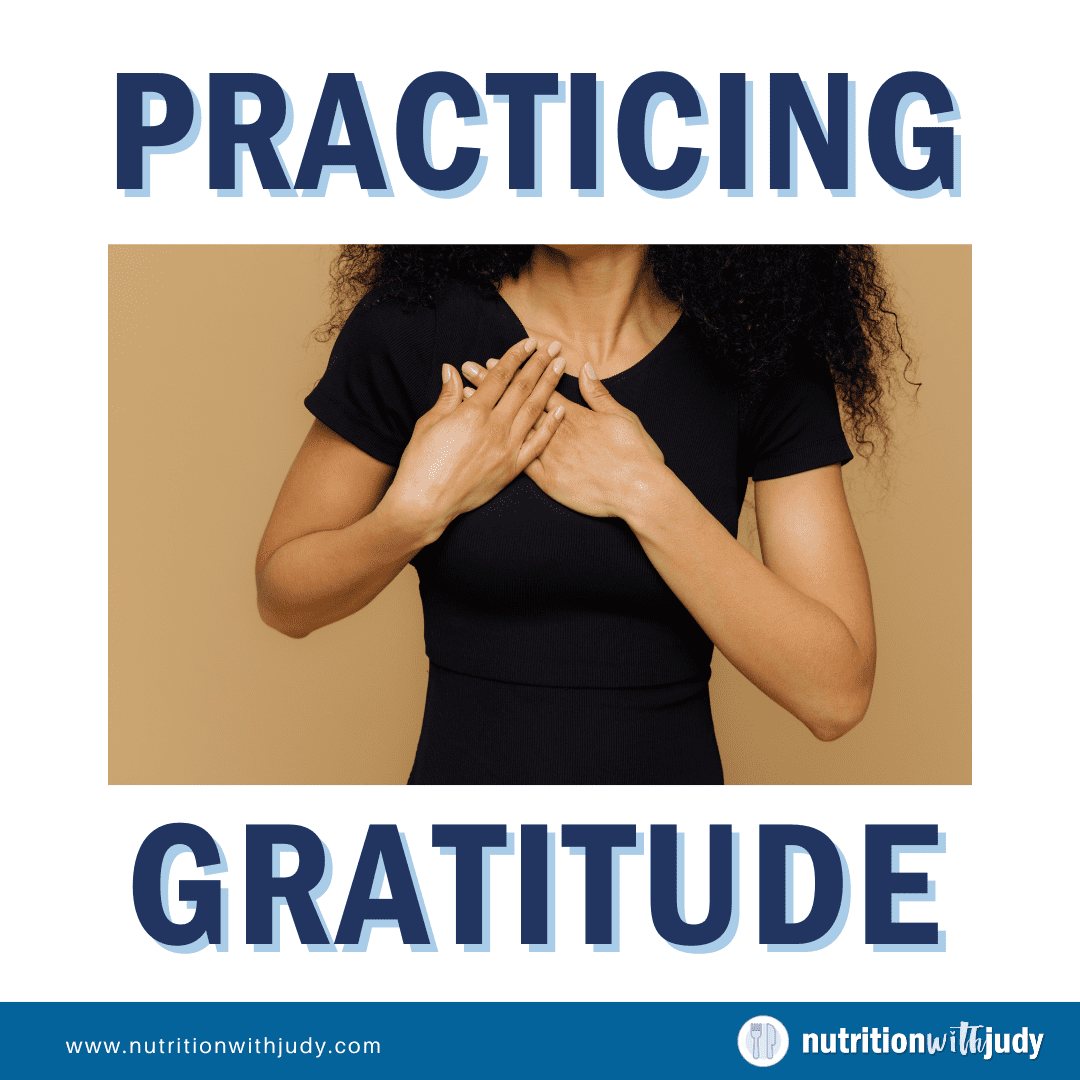

Practicing Gratitude


Original Publish Date: 11/26/22
We know that thinking positively and focusing on gratitude is good for optimal health and happiness. (Source)
But how do we actively do this?
Gratitude journals that help people focus on blessings instead of burdens are helpful. (Source)
How to Practice Gratitude
Gratitude journals may not be enough so here are some suggestions:
- A gratitude letter may be better than journaling. A recent study from the University of California, Riverside, had nearly 1,000 adults try different gratitude practices daily: writing a gratitude letter to someone and not sending it, writing a gratitude essay about something they were thankful for, writing lists of people or things they were grateful for, or keeping tracking of daily activities. The longer writing activities (instead of shortlists), especially gratitude letters, seemed to evoke more gratitude, positive emotions, and connectedness. (Source)
- Sharing gratitude with others. Another study showed that gratitude activities of writing gratitude letters, sending a thank you text, or expressing gratitude in a social media post all had positive emotions, similar feelings of connectedness and support, and less loneliness. This study shows that the best way to say thank you is simply to say thank you and be grateful. (Source)
- A gratitude app can reduce stress. One European study found that after using a gratitude app for six weeks, participants were less depressed, anxious, and stressed. These participants experienced less rumination, more gratitude, and more positive reframing. (Source)
- Reflect on gratitude to reduce regret. One of the biggest emotions we feel is regret. Participants who reflected on gratitude felt less regret about past decisions. Gratitude forces us to stop dwelling on the past. The study found that grateful people tend to focus less on the past and less on regret. Gratitude can also help against future events that often show up as anxiety. (Source)
- Say thank you more than sorry. Some studies show that thank yous are more effective than apologies. This will greatly depend on the culture, as Asian cultures tend to apologize before asking for favors. One 2022 Japanese study found that college participants were more willing to offer help if the friend said thank you instead of “I’m sorry to bother you but…” (Source)
- Wear an anti-gratitude wristband. In the book, A Complaint Free World, Will Bowen recommends wearing a rubberband or bracelet. Every time you make a complaint, the band has to be switched to the other wrist. This practice is very powerful as you become hyper-aware of your thoughts and the thoughts that then affect your mood, behavior, and actions. Try wearing a band for negative thinking. If you have a negative thought in your mind or a non-grateful belief in your mind, try switching the band. Do this until you have at least one week of zero non-grateful thoughts. It isn’t easy but the lesson is powerful.
- Let it go, Indie, Let it go. Indiana Jones reference. Sometimes knowing that it’s out of your hands is therapeutic. I personally like to pray. When I know that some things are out of my control and I pray about it (absolving my perceived control)—there’s a sense of peace that comes with it all.
It’s normal to feel and have a broad spectrum of emotions. It’s not as ideal when we ruminate on our past. We all have regrets. But what we do today can help us overcome these regrets. When we live in our regretful past, we make it our future. Only you have the power to stop this cycle.
We have one life to live. The only guarantee we have is that we will all die one day. Tomorrow is not guaranteed, so make each day count. Start by creating daily win days (daily goals that get you to your longer-term goal), and focus on your blessings rather than your burdens.
Your wellness depends on it.
In health,
Judy



